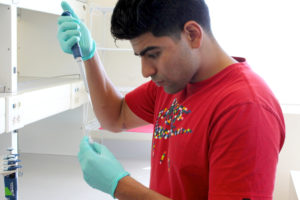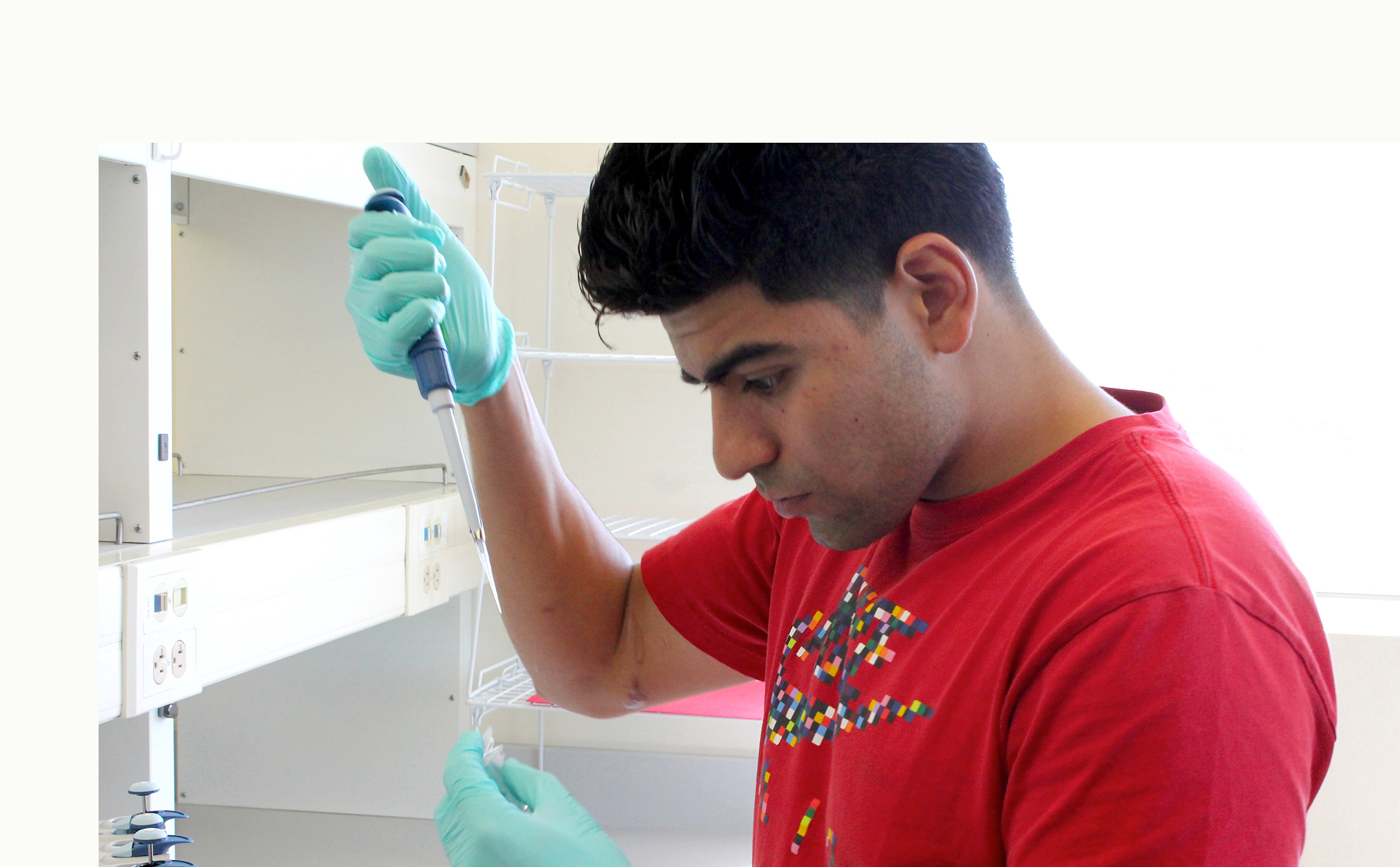August 13, 2020

Highlands biology student Fabian Pescador conducts molecular research at Highlands.
Las Vegas, New Mexico – Science students at New Mexico Highlands University will increase hands-on learning with new state-of-the art science instrumentation and technology tools, thanks to a grant from the Sherman Fairchild Foundation.
The three-year grant totals $272,945 and began in July 2020. It was awarded to the Highlands University Foundation.
“The grant gives students the real-world experience with science technology that helps them envision the path to careers in science, technology, engineering and math – STEM,” said Sarah Corey-Rivas, Highlands biology professor. “We are integrating the new equipment into student labs for a more dynamic inquiry-based student experience.
“With the help of a curriculum developer, we will track and improve fundamental science skills like data analysis that students will gain using the new equipment. All the equipment has the latest LCD interactive screens that help students visualize their experiments and results,” Corey-Rivas said.
Corey-Rivas said the grant provides a diverse range of advanced equipment including a digital droplet thermocycler.
“Students can use this thermocycler in research for immunology, microbiology and conservation genetics. Large universities are just beginning to use this technology, which is central for biomedical careers,” Corey-Rivas said.
The Biology Department and Geology Department will share access to new laptop computers, field tablets and Vernier sensors, which are used to record new data in live time such as oxygen consumption in mammals, photosynthesis in plants and changes in temperature.
Geology professor Jennifer Lindline said: “The Highlands science faculty is very excited about the acquisition of the Labquest computer tablets and software. These products will allow for a variety of real-time analysis across the science disciplines so students can sharpen their measurement skills and get hands-on experience in using data to back up their ideas.”
Lindline said the new Vernier sensors will enhance the laboratory experience in the Geology 101 course.
“Students will be able to measure water quality parameters like pH and dissolved oxygen, in the field or laboratory, and connect with the streams they monitor in watersheds they value. The Vernier sensors will support the Environmental Geology Program’s teaching model that emphasizes experience and inquiry-based learning,” Lindline said.
Corey-Rivas said that in biology, the new grant equipment will introduce freshman to biotechnology.
“Then we’ll advance biology students to using the state-of-the-art molecular and cellular equipment from this grant in upper-level classes and capstone research. For example, the students will use the digital droplet thermocycler and a new imaging system for generating, visualizing and quantifying DNA and RNA,” Corey Rivas said.
Ian Williamson, vice president of academic affairs at Highlands, said the Sherman Fairchild Foundation grant will strengthen the university’s ability to integrate new instrumentation into its science curriculum.
“By building upon our existing scientific instrumentation, we position ourselves to stay current and relevant for our students preparing for STEM careers,” Williamson said.
Williamson said Theresa Law, vice president of student and donor engagement at Highlands, identified the Sherman Fairchild Foundation grant and played a key role in securing the grant.
Elizabeth Ratzlaff wrote the Sherman Fairchild Foundation grant in coordination with the university’s Office of Academic Affairs and a team of science faculty at Highlands that included Corey-Rivas, Lindline and others.

